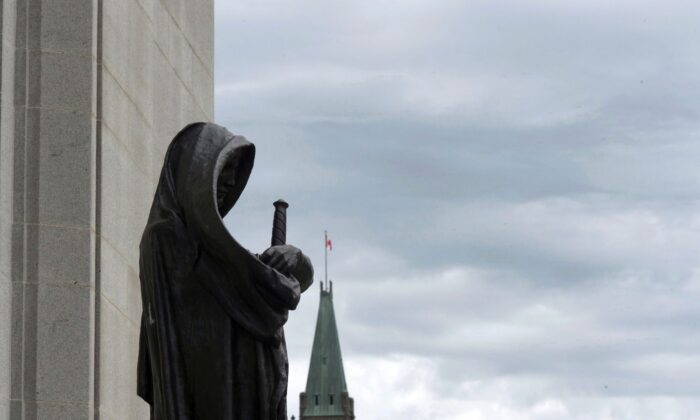Commentary
In September, Alberta Premier Danielle Smith announced the importance of adding the right to make one’s own choices about vaccinations to the Alberta Bill of Rights, emphasizing that “No Albertan should ever be subjected or pressured into accepting a medical treatment without their full consent.”
While some argue that new laws protecting bodily autonomy may be redundant due to the Canadian Charter of Rights and Freedoms, which already safeguards citizens from government abuse, it is essential to note that in practice, the application of these protections may not always be straightforward.
The Charter theoretically protects bodily autonomy, including the right to make medical decisions, under the right to “life, liberty and security of the person.” It requires governments to provide compelling evidence justifying any health orders that may infringe upon Charter rights, ensuring that such measures are truly necessary and beneficial. Judges are expected to base their rulings solely on evidence presented in court, without influence from external sources like the media.
However, in reality, some judges have upheld government measures such as lockdowns and mandatory vaccinations without transparent justification or adequate reasoning. Instances have been documented where judges made unsupported claims in their rulings, seemingly influenced by media reports rather than factual evidence.
It is evident from such cases that reliance on media reports and governmental assurances without critical evaluation can lead to questionable judicial decisions that may not prioritize individual rights and freedoms.
When the Saskatchewan Health Authority affirmed the safety and efficacy of a vaccine still in clinical trials for children, this judge readily accepted the government’s assertion as absolute truth.
In Hillier v. Ontario, the Ontario Superior Court of Justice upheld the government’s complete prohibition of all outdoor protests as a justified infringement on citizens’ Charter freedom to assemble peacefully. The judge sided with the government without giving due consideration to the significant harms caused by lockdown measures on millions of individuals. The judge overlooked a comprehensive report by medical anthropologist Dr. Kevin Bardosh, which highlighted the detrimental effects of lockdowns in Canada based on 150 peer-reviewed Canadian studies.
In Ontario v. Trinity Bible Chapel, the judge upheld the government’s violations of Charter freedoms while proudly stating that she would not delve into a thorough scientific analysis of the pertinent issues surrounding Covid-19. The judge asserted that it was not her role to mediate conflicting views on the matter, contrary to the essence of a judge’s duty to resolve disputes. The Charter mandates that governments provide compelling evidence to justify any health order that infringes on citizens’ Charter freedoms, but this judge set a lower standard by merely questioning if Ontario’s actions were permissible.
While the Charter theoretically safeguards Canadians from being coerced or manipulated into receiving a vaccine, recent court decisions have shown a bias towards media narratives rather than evidence-based evaluations. It is evident that legislative reforms are necessary to safeguard citizens from government overreach.
(Note: Views expressed in this article are opinions of the author and do not necessarily reflect the views of The Epoch Times.)
Source link





